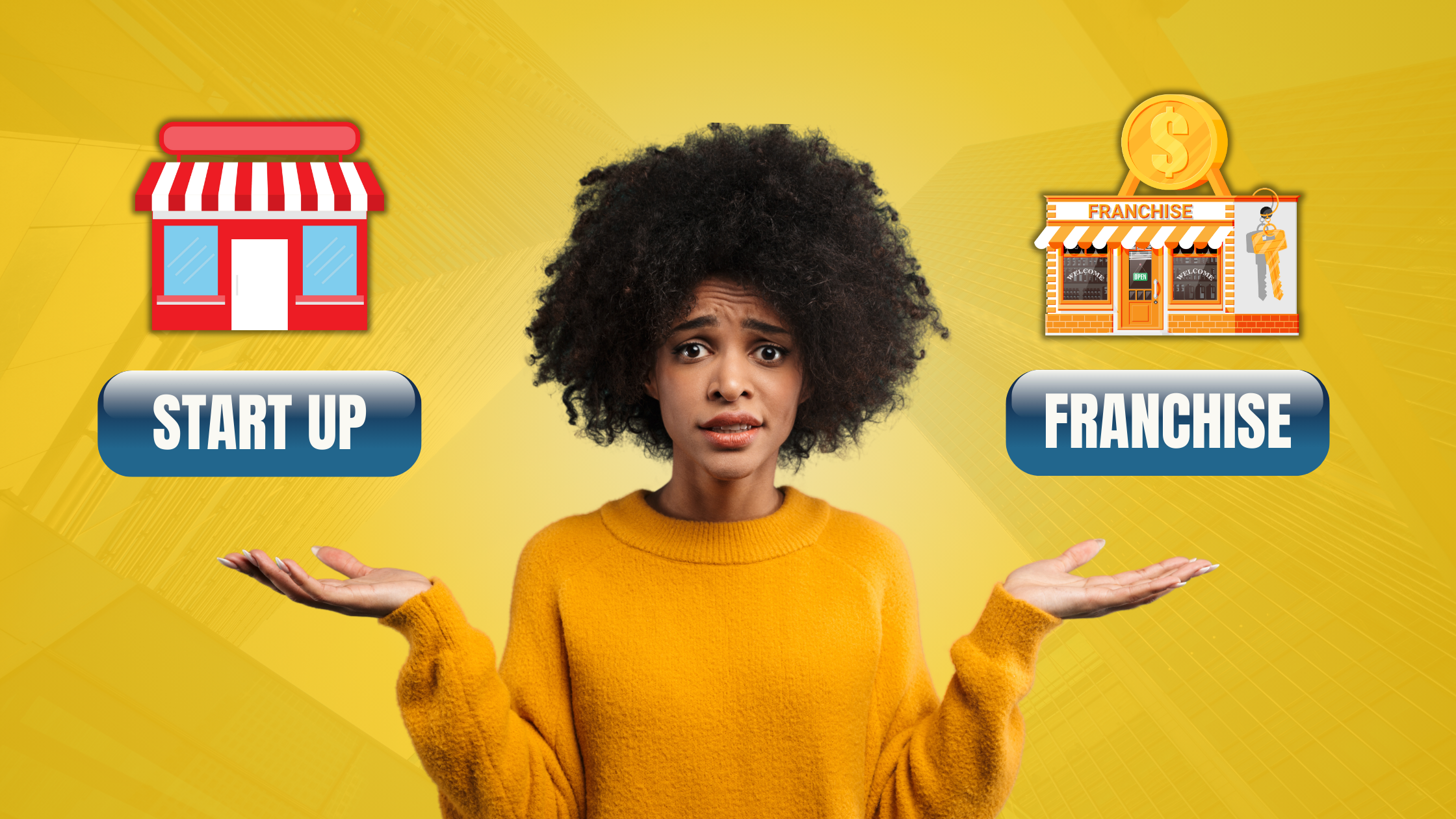
In our previous blog post, Owning a Business From Scratch vs. Franchising: The Best Path for YOU, we explored the initial decision-making challenges entrepreneurs face when choosing between starting a business from scratch or investing in a franchise. This follow-up blog will build on those ideas, focusing more on the financial aspects of both options and uncovering the hidden costs you may not have considered. Whether you’re drawn to the freedom of creating your own business or the structure of franchising, understanding the true costs involved can help you make a more informed decision.
The Financial Realities of Starting a Business from Scratch
Starting a business from scratch comes with many opportunities but also requires a significant financial commitment. You'll need to invest in market research, branding, product development, and marketing campaigns—all from the ground up. There’s no brand recognition to lean on, which often means higher marketing costs to get noticed. Additionally, startup expenses like securing permits, hiring staff, and setting up operations can quickly add up. While there’s the potential for high returns, the risk is also much greater due to the uncertainty of how the market will respond to your new business.
The Costs Involved in Franchising
Franchising offers a more predictable path, but it also comes with its own set of financial commitments. The initial franchise fee is just the beginning—you’ll also have ongoing royalty fees, which are a percentage of your earnings. However, in exchange, you get access to a proven business model, established brand recognition, and continuous support from the franchisor. This helps reduce the financial risk, but you’ll need to carefully evaluate whether the ongoing fees and operational restrictions align with your business goals.
The Upfront Investment—Which Path Costs More?
One major factor to consider is the upfront investment. Starting a business from scratch requires funds for product development, branding, securing a location, and other essentials. Franchising, on the other hand, requires an initial franchise fee plus costs for leasing or purchasing a location. Of course, depending on the franchise, it could be a physical location or remote. While franchise fees may seem high, they often cover valuable resources like training, marketing, and operational support. Deciding which approach fits your budget will help you determine your starting point.
Long-Term Financial Benefits and Risks
Both paths come with long-term financial implications. Starting a business from scratch could lead to higher profits in the long run if your business takes off, but the journey to profitability is usually slower and more uncertain. Franchising offers a quicker return on investment, thanks to the established brand and customer base, but the royalties and fees can limit your overall earnings. Weighing these risks and potential rewards will help clarify which path offers the best financial future for you.
How Operational Flexibility Affects Costs
Starting your own business gives you full control over your operations, but this freedom comes with its own set of financial risks. Any mistakes in strategic decisions can be costly. In contrast, franchising offers less operational freedom but provides a safety net of support and proven methods, which can help you avoid costly errors. Understanding how much autonomy you want in your business will influence your financial planning.
How Tamika Franklyn Can Help You Choose the Right Franchise?
As a franchise consultant, I’ve helped many aspiring entrepreneurs navigate the often overwhelming decision of choosing the right franchise. My goal is to guide you toward the best franchise fit for your future. Let’s connect and explore the opportunities that align with your goals and resources—schedule a FREE consultation with me here!
RECENT POSTS:

Who Should Start a Franchise? Best Franchises by Personality Type

The Silent Threats That Stall Your Dream to Start a Franchise

How to Buy a Franchise with No Experience And Not Lose Your Mind

Here’s How People Are Buying Their Freedom Through Franchising

Franchise Opportunities for Healthcare Professionals Ready for a Career Shift

